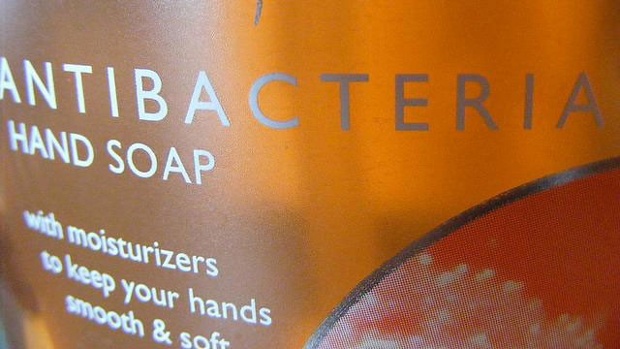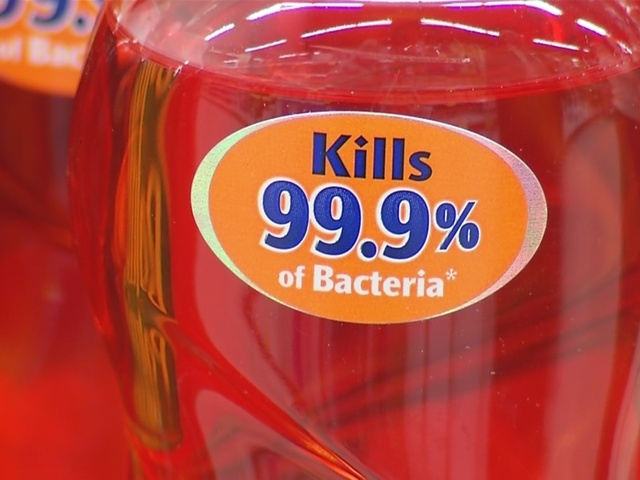FDA bans antibacterial agents from soaps
The U.S. Food and Drug Administration (FDA) has decided to ban anti-bacterial hand and body washes.
 Antibiotic-resistant bacteria are considered one of the biggest threats to human health today. By 2050, infections that cannot be treated with antibiotics are expected to kill more people than cancer. Antibiotics are not only used for treating bacterial infections, but also for preventing infections during surgical procedures, treatment of cancer, etc. Antibiotic resistance threatens to reverse some of the major medical advances we have made within the last century.
Antibiotic-resistant bacteria are considered one of the biggest threats to human health today. By 2050, infections that cannot be treated with antibiotics are expected to kill more people than cancer. Antibiotics are not only used for treating bacterial infections, but also for preventing infections during surgical procedures, treatment of cancer, etc. Antibiotic resistance threatens to reverse some of the major medical advances we have made within the last century.
Overuse and misuse of antibiotics are key factors leading to bacteria becoming resistant to antibiotics. Another contributing factor we often forget about is the use of anti-bacterial products at home. Most contain chemicals such as triclosan or quaternary ammonium compounds (QACs).
Anti-bacterial products have never proven to be any better than products without triclosan or QACs. For example, there is no evidence a hand soap containing triclosan or QACs is any better at removing bacteria from our skin than plain soap. And washing hands with plain soap and water is the most effective step to avoid getting sick and to prevent the spread of germs.
In spite of this, markets are literally flooded with anti-bacterial products. We now find anti-bacterial compounds in soaps, toothpastes, clothing, mattresses, cutting boards, office supplies, computer keyboards, shopping carts — the list goes on. Triclosan, for example, is quite stable under high temperatures, which makes it ideal for incorporation in plastics and fabrics. Such products are distributed under the trademark Microban.
While the use of compounds such as triclosan was originally confined to health-care settings, their extensive use in our homes in the recent years means these can be detected quite readily in the environment. These compounds also tend to be extremely stable in nature and can persist in our environments for a long time. It is therefore not surprising that triclosan can now be detected in soil as well as water bodies.
 For years, various laboratories, including ours, have shown it is very easy to find bacteria resistant to triclosan and QACs. More concerning is the fact the mechanisms of resistance can be exactly the same mechanisms bacteria use to become resistant to antibiotics, a phenomenon called cross-resistance. This means using products that contain triclosan and QACs at home can kill off normal bacteria but leave behind those that are resistant to both these compounds and antibiotics. In the scientific community, it is well-accepted that the widespread use of triclosan and QACs likely contributes to the prevalence of bacteria resistant to antibiotic medication.
For years, various laboratories, including ours, have shown it is very easy to find bacteria resistant to triclosan and QACs. More concerning is the fact the mechanisms of resistance can be exactly the same mechanisms bacteria use to become resistant to antibiotics, a phenomenon called cross-resistance. This means using products that contain triclosan and QACs at home can kill off normal bacteria but leave behind those that are resistant to both these compounds and antibiotics. In the scientific community, it is well-accepted that the widespread use of triclosan and QACs likely contributes to the prevalence of bacteria resistant to antibiotic medication.
In addition to selecting for bacteria with reduced susceptibility to antibiotics, there is also recent evidence triclosan can alter the composition of good bacteria that reside on or in us that may have an impact on health as well. There is also evidence that triclosan can act as an endocrine disruptor, chemicals that can interfere with the body’s hormone system.
After three years of deliberations, the FDA determined there is simply no evidence the use of anti-bacterial soaps is better at preventing illness than plain soap and water, and the risks of using chemicals such as triclosan in domestic settings by far outweigh its benefits, if any.
Even though the current FDA ban does not include QACs, its decision to eliminate triclosan and 18 similar chemicals from hand and body washes is only a first, but significant step.
The above is excerpted from an opinion piece on The Winnipeg Free Press by Ayush Kumar, associate professor in the department of microbiology at the University of Manitoba who studies antibiotic resistance in bacteria. You can read their full article here.
You can also read or share The Globe and Mail’s article, The FDA will ban antibacterial ingredients from soaps. What about Canada?
